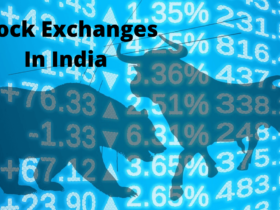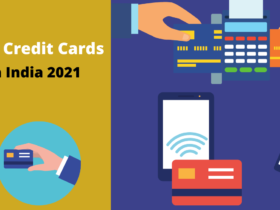With a net worth of $ 82 billion, Warren Buffett is so far one of the most successful investors. Their investment style, which is based on discipline, value, and patience, is the result that has consistently outperformed the market for decades.
While regular investors — who have, the rest of us — don’t have the money buffets the way to invest, we can follow one of the ongoing recommendations for that: low-cost index funds to invest smarter Most people can make.
An index fund is made up of a market index that tracks an investment, usually stocks or bonds. Investing in index funds generally include all components of the index they track and fund managers whose job it is to ensure that an index fund performance is to make as the same index. Know about Best Investment Plans In India.
What is an Index Fund?
Many investors are aware of the benefits of diversifying their portfolios across assets. Index funds often catch their eyes in this search they see investment in the index broad market funds – like the Sensex or Nifty.
All shares in these indices will get representation in its investment portfolio. It is theoretically similar to a performance index, in which the address is being explored. Its main USP ratio of cost.
Index funds are not actively managed, thus leading to lower expenses. They are not intended to outperform the market, but instead to maintain uniformity. They help an investor manage or balance their risk in their investment portfolio.
Here 3 Step process to invest in Index Funds
Read Also:- How to Invest Money
#1. Decide where to buy
You can buy an index fund directly from a mutual fund company or a brokerage. The same goes for exchange-traded funds (ETFs), which are like mini mutual funds (these are more on the bottom) trading like stocks throughout the day.
When you’re choosing where to buy an index fund, consider:
- Fund selection– If you want to buy index funds from different fund families? Large mutual fund companies to take some of the money to its rivals, but choose what more could be limited compared to the available range of a discount broker.
- Convenience– A single provider Find can accommodate all your needs. For example, if you are just going to invest in mutual funds (or even a mix of funds and shares), a mutual fund company may be able to serve as their investment destination.
- Trading costs– Do not forgive commission or transaction fee, then consider how to sell a broker or fund company to buy fee or index funds. Compared with the mutual fund commissions less than $ 10 a trade for stocks and ETFs, are higher than those of stock trading at about $ 20 or more.
- Commission-free options– They offer no transaction fee mutual fund or commission-free ETFs? This is an important criterion rate discount brokers we use. (Are Charles Schwab, E-Trade, Fidelity, and worth checking out the selection at TD Ameritrade.)
#2. Pick an index
Hundreds of different indexes you can track using index funds. The most popular index S & P 500 index, which includes 500 of the top companies in the US stock market. Here are some additional top indexes, the market is a shortlist of the segment which parts of the cover
And index funds – – There are selected based on the composition of stocks or other assets indexed:
- Company size and capitalization– Index funds are small track, medium-sized or large companies (also known as small, mid-, or large-cap indexes).
- Business sector or industry– Fund, for example, consumer goods, focusing on businesses related to technology, health.
- Geography– These funds shares that foreign exchanges or focus on business on a combination of international exchange.
- Asset type– Funds that track domestic and foreign bonds, commodities, cash.
- Market opportunities– Market or other nascent emerging but growing areas of investment.
#3. Choose the right fund and Buy index fund shares
Once You’ve chosen an index, You Can Generally Fund therefore Least One index fund embellishment tracks IT. For popular indexes like the S & F 500, you might have a dozen or more choices all tracking the same index.
To buy shares in their chosen index fund, you usually have an account directly from the mutual fund company that provides open with the fund. Alternatively, you can open a brokerage account with a broker that allows you to share sell can buy an index fund you’re interested in.
Again, in the way determined by the best for you to buy shares of an index fund, it pays to look at the costs and features. Some brokers charge extra for buying your customer’s index fund shares, it is cheaper making to go directly through the index fund to open a fund account.
Nevertheless, many investors prefer to have all their investments kept in a single brokerage account. If you anticipate investing in many different index funds offered by different fund managers, then the brokerage option may be your best way to combine all your investments under a single account.
Top 5 Index Funds in India
| Fund Name |
|---|
| SBI ETF Nifty Next 50 |
| Motilal Oswal NASDAQ 100 ETF |
| ICICI Prudential NV20 ETF |
| UTI Sensex ETF |
| HDFC Sensex ETF |
FAQ
Ans– Investors find index funds especially useful for many reasons:
1. Reduce your time spending personal stock research.
2. You can invest with less risk. Dozens of most indexes or stocks and other investments, even hundreds, and diversification leave you to happen to have one or two companies at a bad index that includes the possibility of big losses.
3. Index funds are available for a wide variety of investments.
Ans- There are a variety of index funds. Here is what you need to know:
– Broad market: A huge market index seeks to capture a wide range of markets. A large market index fund is usually a small expense ratio. Comprehensive Index sales of assets in the fund are actually efficient small and excessive
– International index funds: Global index funds offer you an international investment. As an investor, you can buy monitor funds that indexes are not tied to a specific geographical area in emerging markets or frontier markets.
– Market capitalization: Investors can benefit from the performance increase for a wide basket of long-term investment horizon enterprises of small and medium-sized businesses. Index funds can achieve this objective on the basis of market capitalization.
– Bond based index funds: The use of bond index funds can help, short, intermediate, and to keep the maturity of long-term bonds that maintain a healthy combination to generate steady revenue.
– Earnings based: Index funds can work benefits or based on a company’s earnings. Development index and value index: There are two types of index-linked companies. D is made of indexed businesses that the market is likely to generate quick profits than others.
Ans- There are 4 index funds to get you started to invest.
1. Vanguard 500 Index
2. Vanguard Total Stock Market
3. Vanguard Total International Stock Market
4. Vanguard Total Bond
Ans– A benchmark tracks like an index fund Nifty, its portfolio includes Nifty in the same ratio that is 50 shares, will. An index is a group of securities that defines a market segment. These securities bond market instruments or equity-oriented instruments like stocks. Some Sensex of the most popular indices in India and the NSE Nifty.
Since index funds track a particular index, they are subject to passive fund management. The fund manager decides who bought the shares, according to the structure of the underlying benchmark to be sold. Unlike actively managed funds, is not to identify opportunities for a standalone team of research analysts and picking stocks.
Read Also:- How to Invest in Stocks : A Beginner’s Guide








